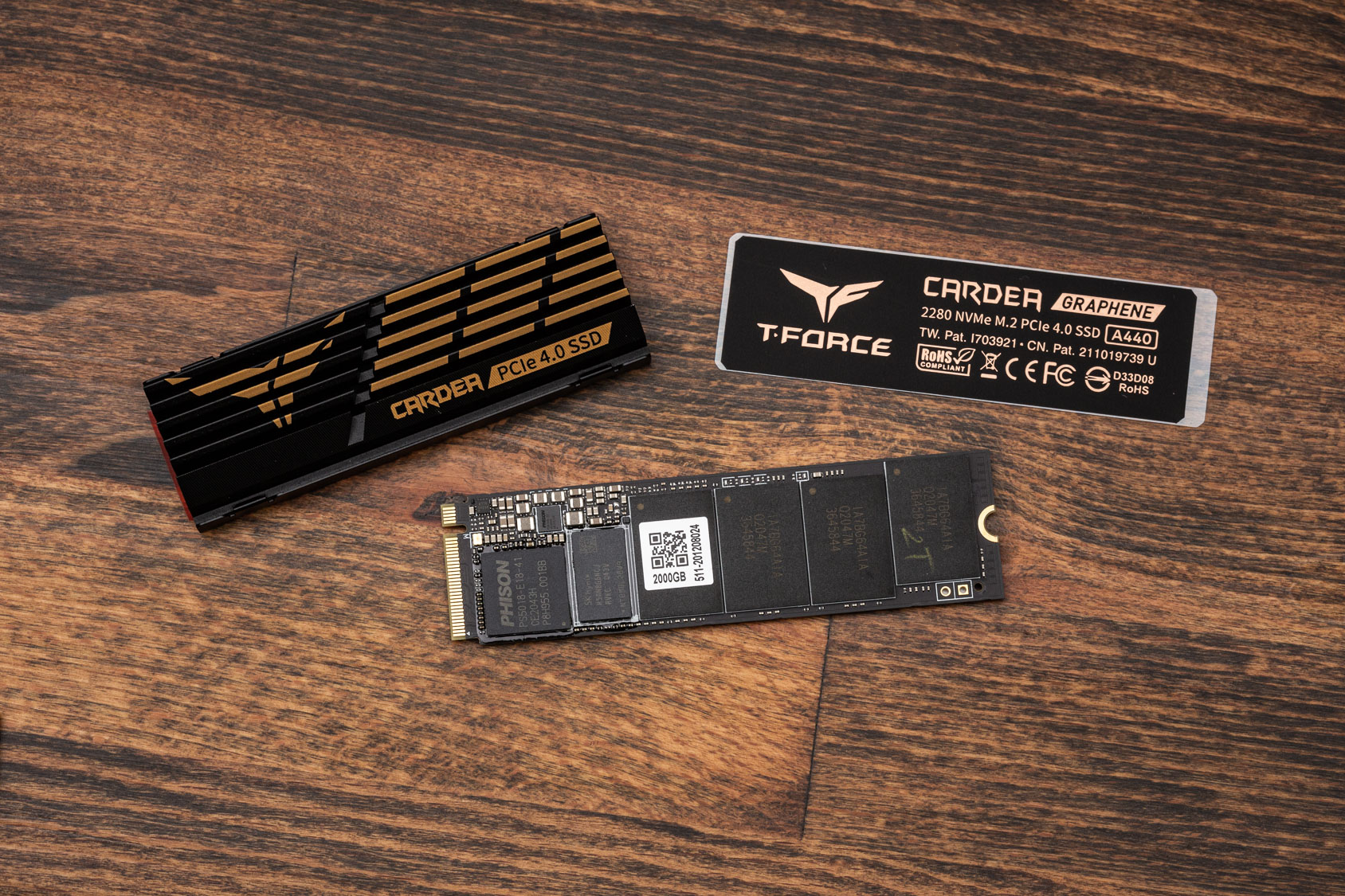Tom's Hardware Verdict
Team Group’s T-Force Cardea A440 leverages Phison’s E18 and Micron’s 96L TLC to deliver responsive Gen4 performance at comparative value pricing. The included graphene and aluminum heatsinks are just cool icing on the cake.
Pros
- +
+ Competitive performance
- +
+ Included graphene and aluminum heatsinks
- +
+ 5-yr warranty and solid endurance ratings
- +
+ Fast SLC cache recovery
Cons
- -
Poor power efficiency under load
Why you can trust Tom's Hardware
Team Group has an SSD for almost any use case, from high-capacity SATA to high-endurance and high-performance M.2 NVMe drives. But for those in search of a fast PCIe 4.0 x4 M.2 NVMe SSD for a gaming console or desktop rig, Team Group’s T-Force Cardea A440 is a great option. It performs well and looks great, although it is on the pricey side.
Powered by Phison’s E18 PCIe 4.0 x4 NVMe SSD controller and paired with Micron’s 96L TLC flash, the T-Force Cardea A440 can dish out up to 7/6.9GBps read/write, but it isn’t going to be quite as responsive as the recently reviewed Corsair MP600 Pro XT or the Seagate FireCuda 530.
Interestingly, the Cardea A440 comes with two of the company’s patented heatsinks, one a slim profile graphene and copper label for tight fits and the other designed for desktop users who want maximum cooling.
The company states that both heatsinks are compatible with the PS5, although the larger aluminum heatsink will prevent you from reinstalling on the M.2 slot’s lid. But based on our testing, the lid actually hurts cooling performance, resulting in higher operating temperatures when under load. While more dust may accumulate over time with the metal cover off, as long as you’re diligent with your dust maintenance, that’s unlikely to cause a serious issue.
Specifications
| Product | 1TB | 2TB |
|---|---|---|
| Pricing | $157.49 | $319.49 |
| Capacity (User / Raw) | 1000GB / 1024GB | 2000GB / 2048GB |
| Form Factor | M.2 2280 | M.2 2280 |
| Interface / Protocol | PCIe 4.0 x4 / NVMe 1.4 | PCIe 4.0 x4 / NVMe 1.4 |
| Controller | Phison PS5018-E18 | Phison PS5018-E18 |
| DRAM | DDR4 | DDR4 |
| Memory | Micron 96L TLC | Micron 96L TLC |
| Sequential Read | 7,000 MBps | 7,000 MBps |
| Sequential Write | 5,500 MBps | 6,900 MBps |
| Random Read | 650,000 IOPS | 650,000 IOPS |
| Random Write | 700,000 IOPS | 700,000 IOPS |
| Security | N/A | N/A |
| Endurance (TBW) | 700 TB | 1,400 TB |
| Part Number | TM8FPZ001T0C327 | TM8FPZ002T0C327 |
| Warranty | 5-Years | 5-Years |
Team Group’s T-Force Cardea A440 is available in 1TB and 2TB capacities, each priced as low as $0.16 per gigabyte. The A440’s Sequential performance is rated for up to 7.0/6.9 GBps read/write, and it can deliver up to 650,000/700,000 random read/write IOPS at both capacities. Like most other drives in its class, the Cardea features an SLC cache that will degrade once you exceed its capacity threshold. The A440’s isn’t capable of sustaining its write performance until full, but is still well equipped to handle the requests of most gamers and general computing users for day-to-day tasks.
In a nod to PS5 owners, Team Group’s T-Force Cardea A440 comes backed by some high write endurance ratings within its five-year warranty. The 1TB model is rated for up to 700TB of writes, while the 2TB model is rated for twice that (1,400TB), partly due to Phison’s fourth-gen LDPC ECC. It also comes with S.M.A.R.T data reporting capability and Trim support. But it lacks OPAL-compliant AES 256-bit encryption for password protection.
Software and Accessories
Team Group supports the Cardea A440 with a basic SSD toolbox that can be used to monitor the device’s health status and benchmark the drive. As mentioned earlier, it comes with two heatsinks, the graphene label and a thicker aluminum heatsink, both ready to install rather than preinstalled, giving the buyer the option of using either option.
Get Tom's Hardware's best news and in-depth reviews, straight to your inbox.
A Closer Look
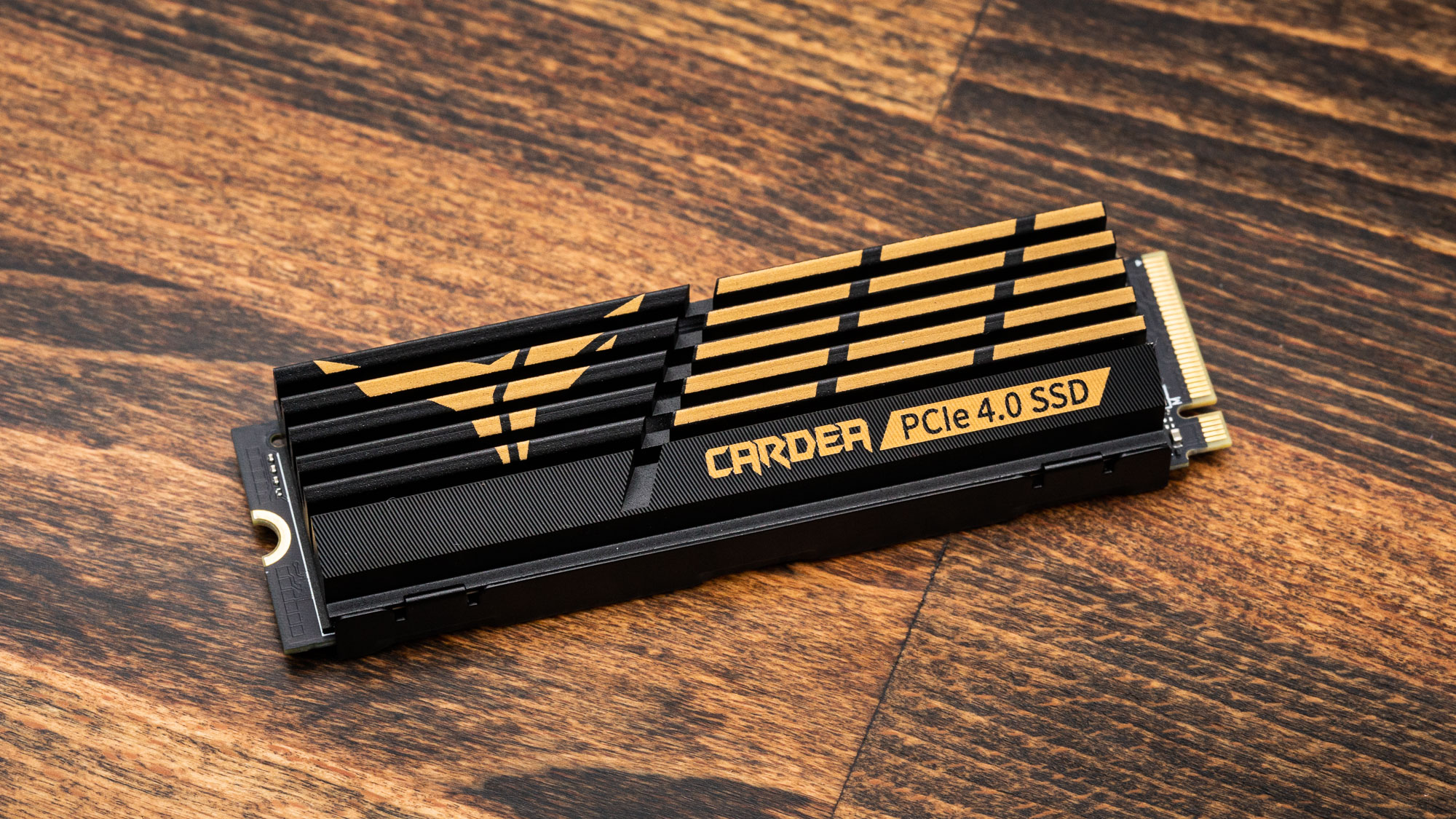
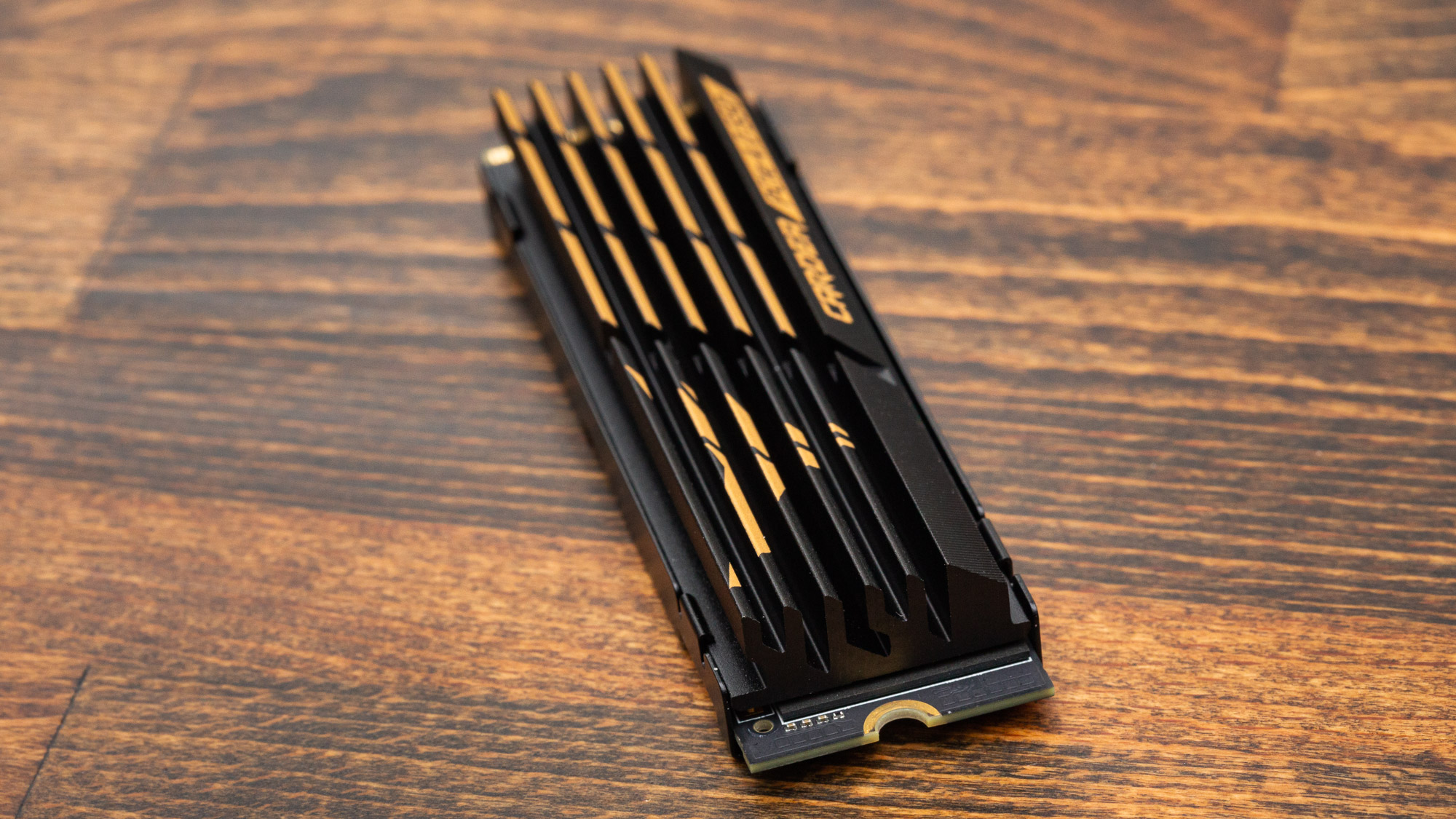
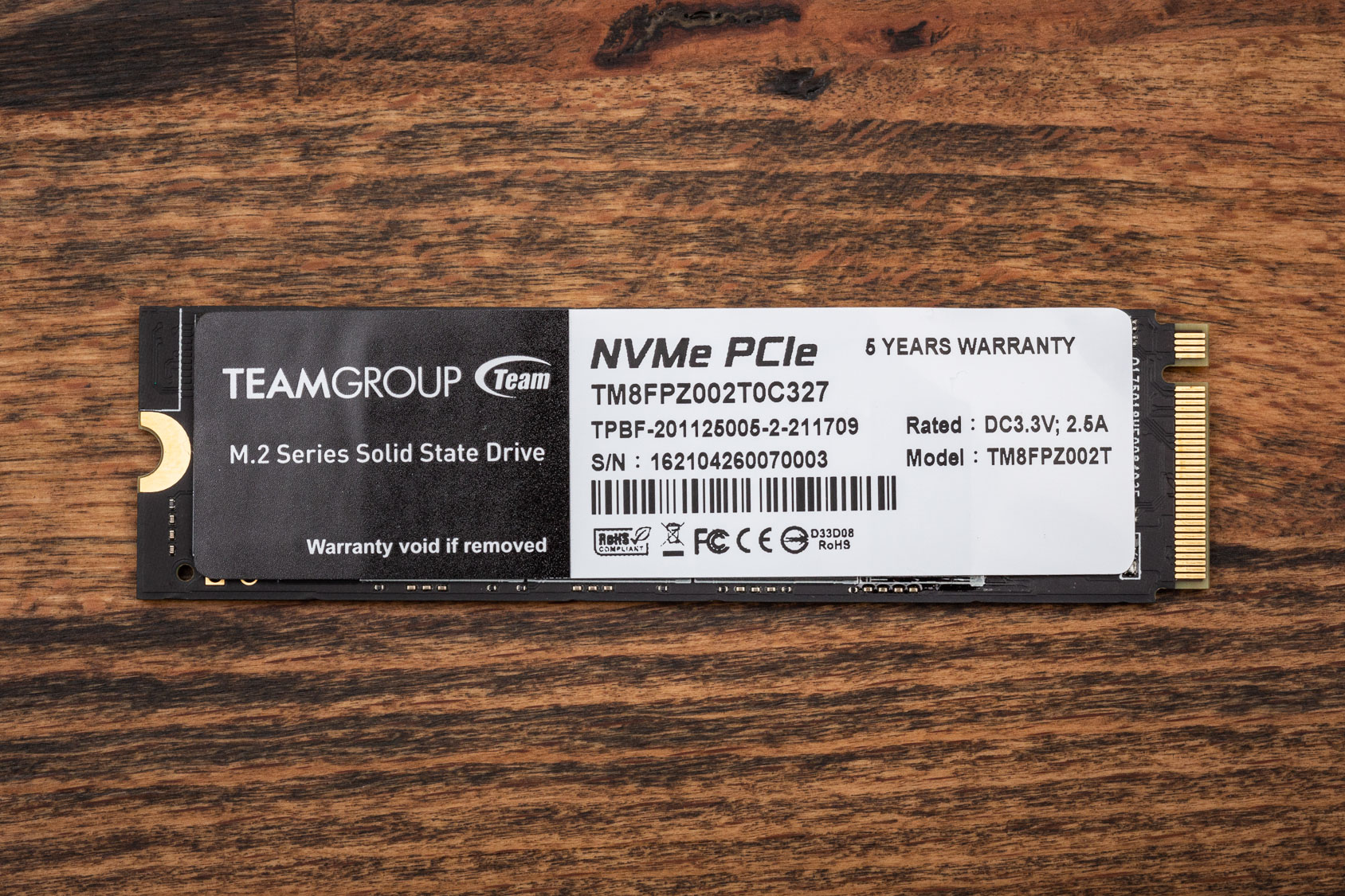
The T-Force Cardea A440 comes in an M.2 2280 form factor and features a black PCB. With the graphene label applied, the A440 measures 3.7mm thick and weighs 13 grams. With the aluminum heatsink installed, the A440 measures 12.9mm thick and weighs in at 46 grams. The company claims that the heatsink will reduce temperatures by up to 20% with the heatsink and 9% with the graphene label.
Aesthetically, the A440 is very attractive with the aluminum heatsink, but we are not as pleased by the design of the graphene label. TW and CN patent numbers as well as the compliance symbols underneath distract from its premium appearance and price tag. This is something that could be easily remedied by moving them to the label on the backside of the PCB.
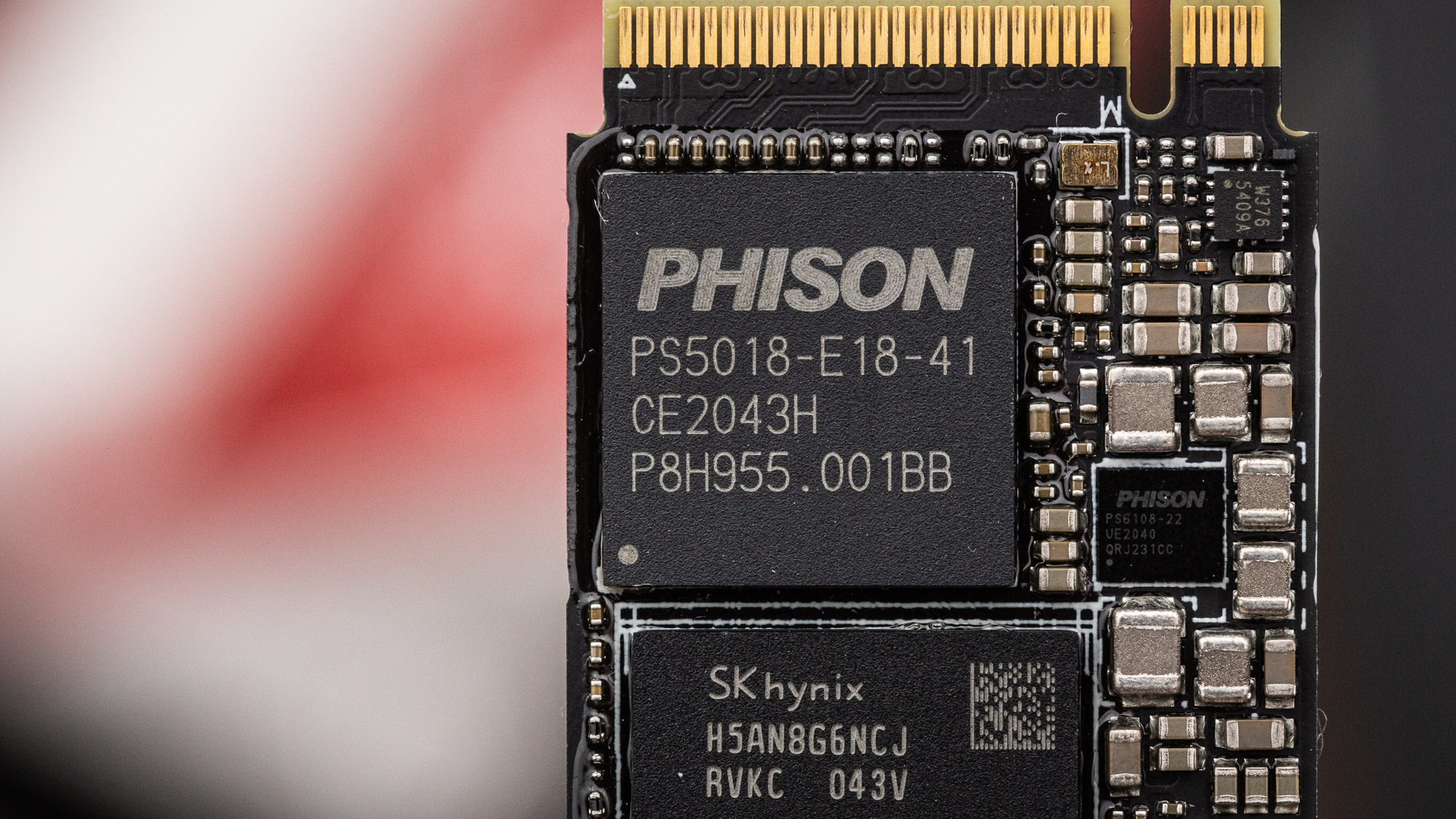
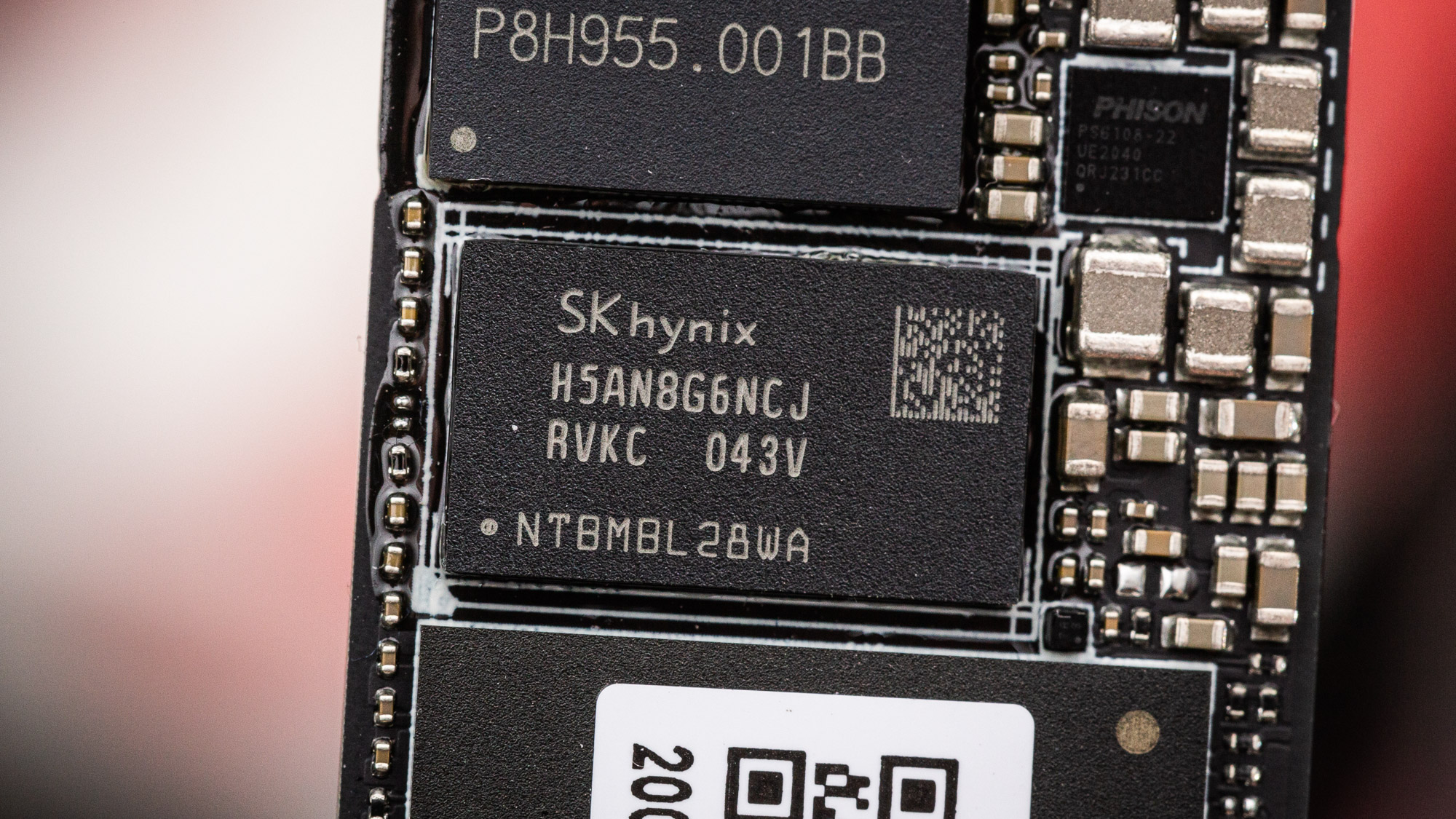
Powering this SSD to multi-gigabyte speeds is Phison’s PS5018-E18, the company’s best consumer eight-channel PCIe 4.0 x4 NVMe SSD controller to date. It’s built on a 12nm process and leverages three ARM Cortex R5 cores clocked at 1 GHz for its main compute, but it also takes advantage of a dual-core coprocessor to aid certain NAND firmware routines. The controller is NVMe 1.4 compliant and features end-to-end data path protection, thermal throttle support, Active State Power Management (ASPM), and Autonomous Power State Transition (APST) capability.
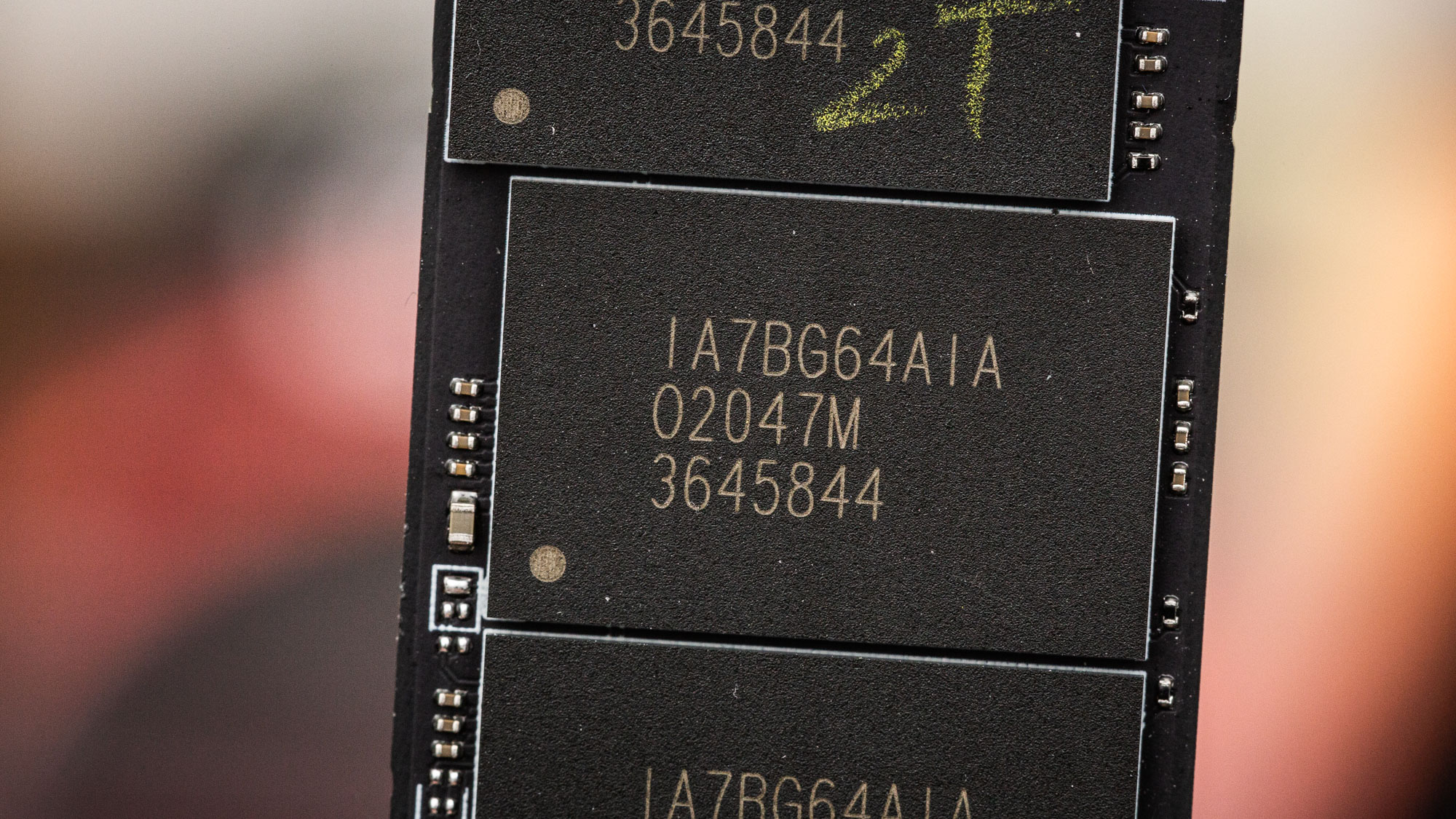
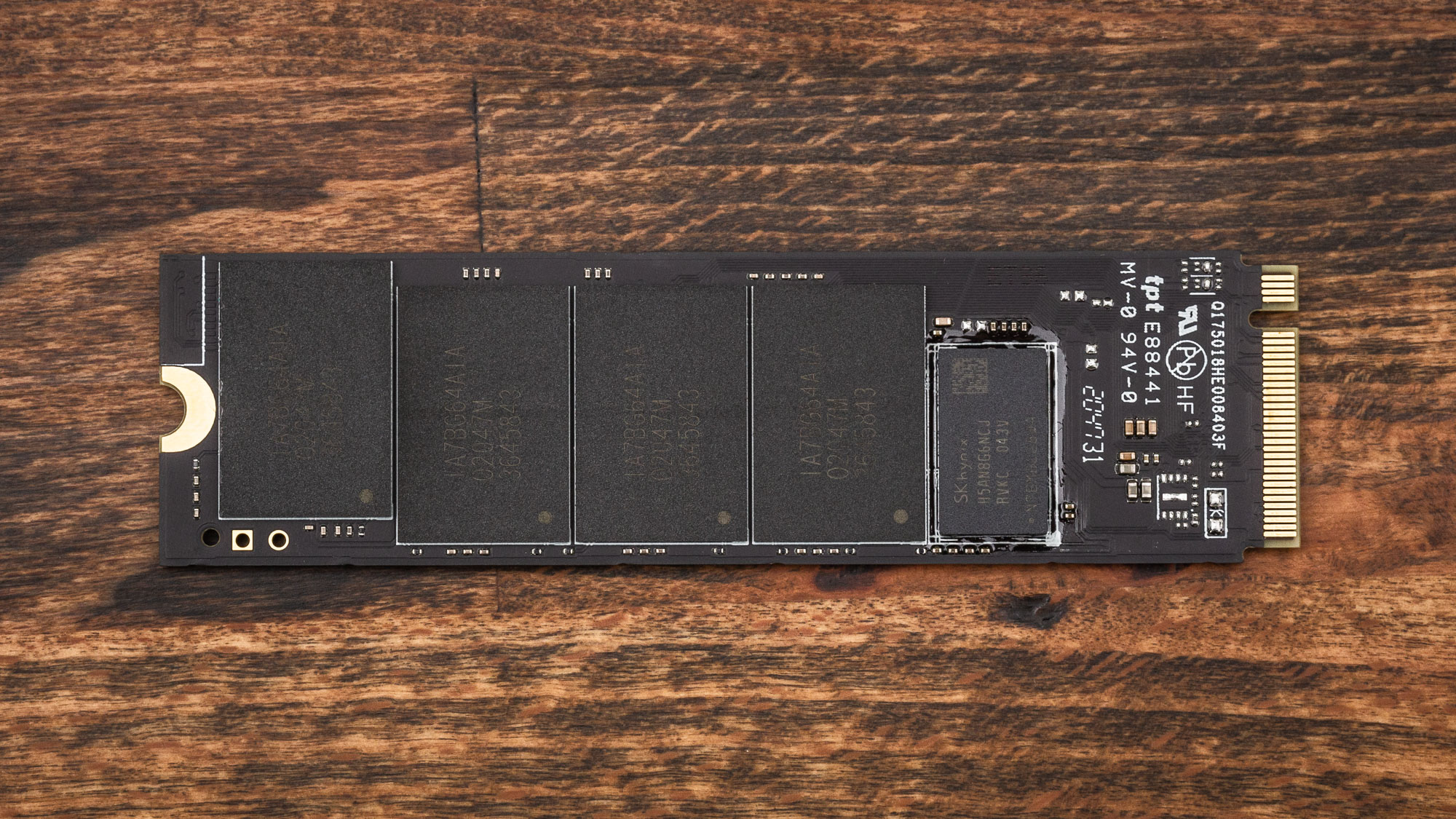
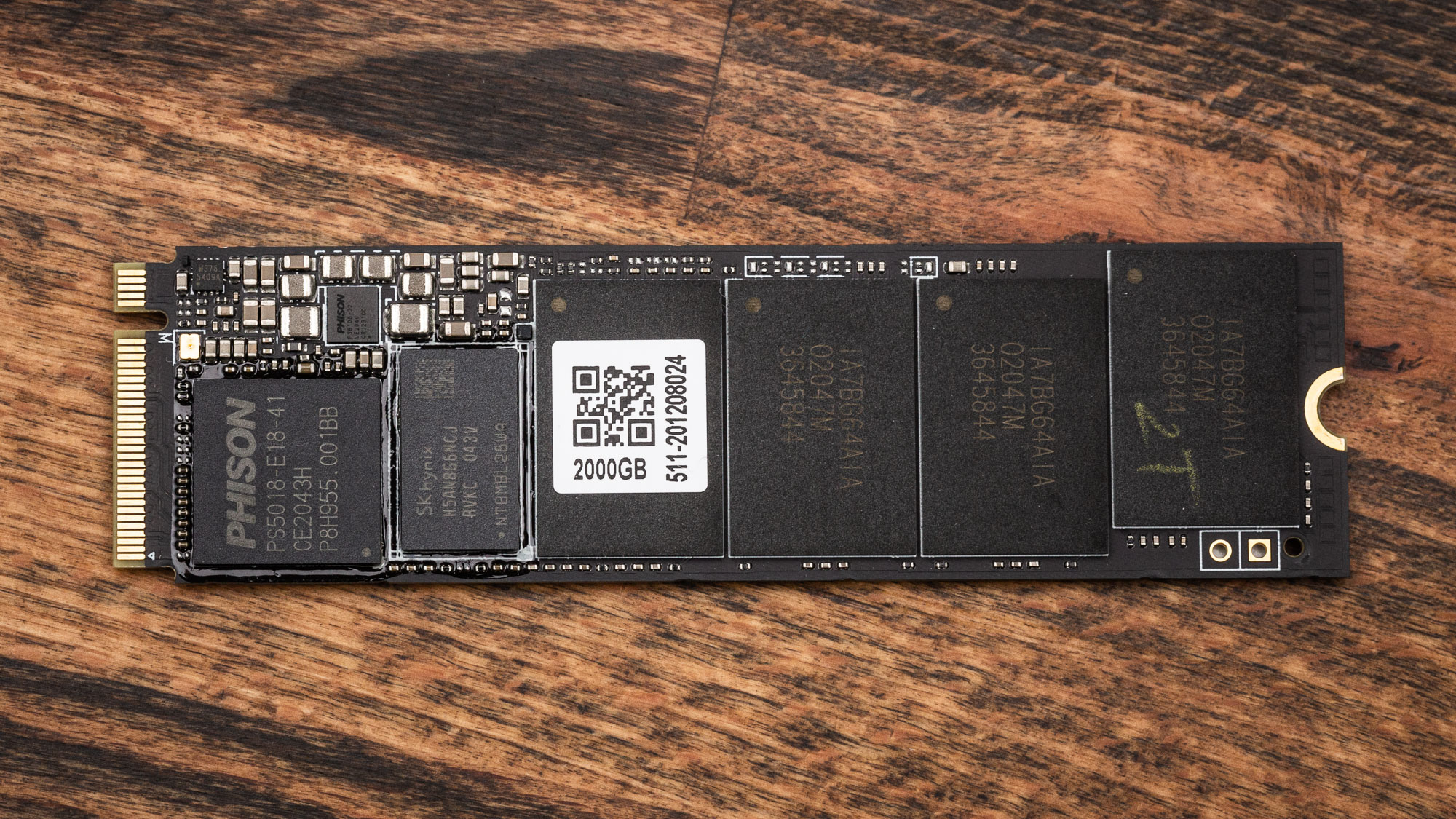
The controller leverages a DRAM cache to store the FTL data, for faster processing of system requests than DRAM-less architectures. Our 2TB sample employs two SK hynix 8Gb DDR4 chips for this task, each clocked at 1,600 MHz. As for the flash, our A440 comes with 32 dies of Micron’s 512Gb 96L TLC, clocked at 1,200 MTps. This NAND flash features a quad-plane architecture, but still isn’t quite as speedy as Micron’s latest 176L replacement gate TLC that’s shipping in some competing SSDs.
MORE: Best SSDs
MORE: How We Test HDDs And SSDs
MORE: All SSD Content

Sean is a Contributing Editor at Tom’s Hardware US, covering storage hardware.
